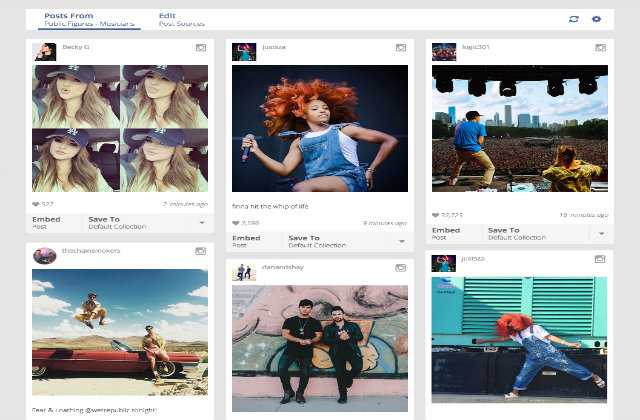
According to Wired, Facebook is making inroads to persuade journalists to use its platform instead of Twitter for news gathering. That’s going to be a tall order, as Twitter’s reputation and usability as a real-time, quick-fire social network currently makes it the choice for journalists tracking breaking news and other stories.
But Facebook bets it can win this battle. It wants to make it easier for journalists to find news on the site, as well as to gauge reader’s reactions and search for images and videos related to news stories. That’s why Facebook is offering journalists the opportunity to sign up for Signal, its trending tool that sources text, videos, images, and data from Facebook and Instagram. According to Facebook’s blog post, it’s merely giving journalists what they’ve always wanted from Facebook, as some reporters have been petitioning the social network to make it part of their news-gathering efforts.
Reporters get access to a dashboard that lets them track trending and emerging stories, follow chatter surrounding public figures on a virtual leaderboard, and look for public conversations, images, and videos. Knowledge of hashtag usage is a plus, as reporters can search for relevant stories by tags or location on Facebook and Instagram.
Facebook also wants to make this as convenient as possible for journalists to use. To serve this aim, journalists will be able to embed any Facebook or Instagram post into their coverage with a simple embed code. Beyond this, entire newsrooms have the chance to integrate Signal APIs to bring curated content right to their sites as well as broadcasts.
Although this is the company’s latest foray into luring reporters, it hasn’t been its first overture. Earlier, Facebook made the Mentions app available to journalists, so that they could broadcast live. Before that, the company debut Instant Articles, where select publications could post their stories directly on Facebook.
Since Facebook is all about pushing its own brand, Signal’s unveiling also relates to Facebook presenting its value to the journalism community. By letting journalists determine what conversations are most relevant and popular to people at any given moment, it’s helping them tell stories with greater efficiency. In turn, that makes Facebook even that much more valuable to its users.
Only time will tell if Facebook succeeds in making itself the one-stop shop for journalists. In the meantime, it’ll gather feedback from early users to make Signal as helpful as possible to the journalism community.

